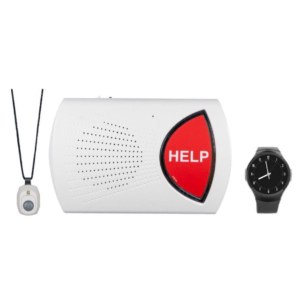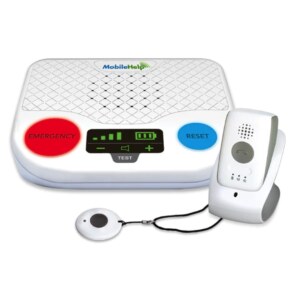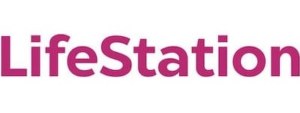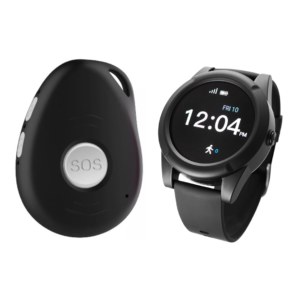Best Medical Alert System For Alzheimer’s And Dementia
AgingInPlace.org keeps our resources free by working as an affiliate partner with some companies mentioned on our site. These partnerships or the commission we may earn do not affect our opinions or evaluations of the products we mention. Our reviews are solely based on our research methodology and from input from our AgingInPlace.org Advisory Board. Learn more about our ad policies.
Best Medical Alert System For Alzheimer’s ...
Products carousel
Caring for a loved one with Alzheimer’s or dementia can be challenging. People in the early stages of dementia-causing diseases often want to hold on to their independence, and it can be difficult to balance the safety and security of your loved ones while still allowing them to live independently.
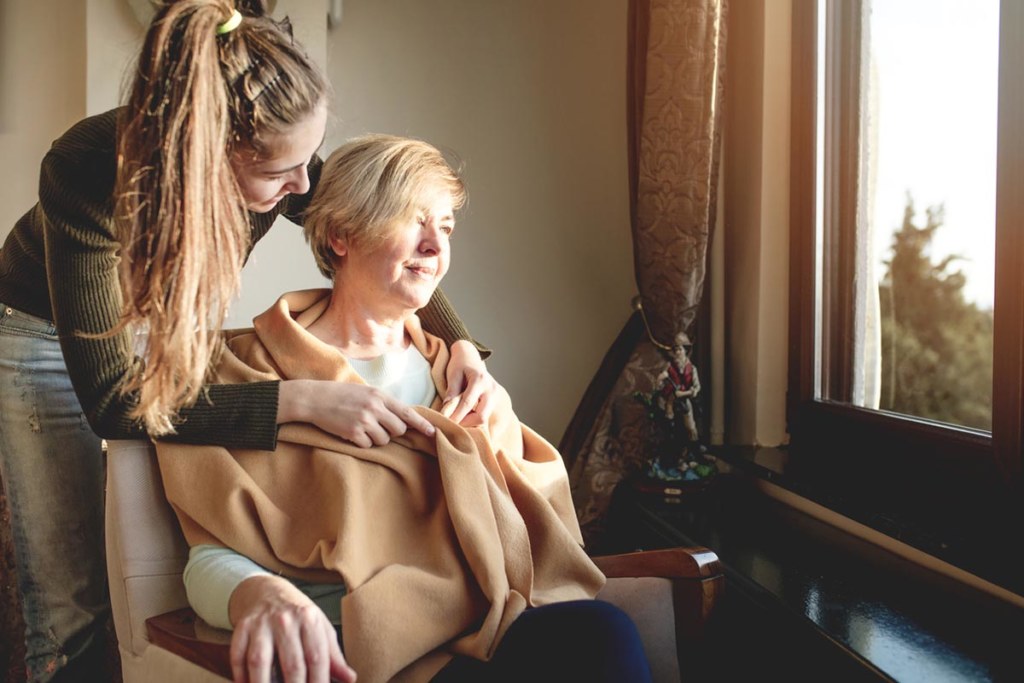
While there’s no perfect option for people with Alzheimer’s or dementia, medical alert devices with locating technology can help caregivers find loved ones who get lost.
A medical alert system can provide some peace of mind in this regard.
We’ve put together this list of the best medical alert systems for people with Alzheimer’s and dementia to help you or your loved one get the help you need so you can breathe a little easier. From on-the-go systems for people still able to run errands and live an active lifestyle to at-home options with 24/7 monitoring and caregiver alerts, this review reveals our top picks.
Key Takeaways
- GPS tracking is an essential feature for caregivers of those with dementia.
- A bundled system that offers GPS wearables and an in-home base unit may provide maximum protection for people with Alzheimer’s or dementia.
- Caregivers of people with moderate to severe dementia who are looking for a medical alert system should consider options with caregiver tools that allow for remote tracking.
Overview

Alzheimer’s is a neurological disease that causes dementia, which is a decline in cognitive ability that can impact a person’s ability to function from day to day.
According to the Alzheimer’s Association, the disease is the most common cause of dementia.
Because dementia can impact a person’s thinking and memory, it can make life difficult.
A person with dementia may:
- Have trouble remembering things
- Find it hard to keep track of things, like wallets or purses
- Struggle to remember appointments
- Forget to pay bills
- Get lost and forget where they are and how to get home
- Find it difficult to plan or prepare meals and complete other routine tasks
While there’s no perfect option for people with Alzheimer’s or dementia, medical alert devices with locating technology can help caregivers find loved ones who get lost.
Most electronic locator devices are equipped with GPS or other tracking technology that allows you to track a person’s whereabouts. Many devices work using a cellular network, which means the device must be in the cellular network range to transmit emergency alert data. This is called network-assisted GPS, or A-GPS.
Medical Alert Systems for Seniors with Alzheimer’s or Dementia Reviews:
- Editor’s Choice: Bay Alarm Medical
- Best for Couples: MobileHelp
- Best Monitoring Tools: LifeStation
Bay Alarm Medical’s systems start at $19.95 per month for the in-home system.
For people with dementia, we recommend the on-the-go system, which starts at $29.95 per month, plus the cost of the device. This system allows you to track someone if they wander off and/or get lost. Fall detection incurs an extra monthly charge.
There are three mobile system options:
- Mobile LTE
- Mobile PLUS
- Mobile 360
Mobile systems are water-resistant, provide up to 72 hours of battery life, and include optional fall detection.
These systems also come with caregiver tracking that allows users to get GPS location data in real-time. You also have the option of bundling the mobile system with an in-home unit, which is likely the best choice for caregivers to those with moderate to severe dementia.
See Our Full Bay Alarm Medical Review.
MobileHelp is a medical alert system company offering GPS-enabled systems at home and on the go. The company even has an option that offers two help buttons, making it a good choice for couples.
Pricing varies, so you’ll have to contact the company for an exact quote, which is a bit of a downside to this provider.
System options include:
- MobileHelp Solo: Includes a wearable help button and a mobile GPS unit for at home and on the go. Automatic fall detection is available for an extra fee.
- MobileHelp Micro: Includes a compact wearable help button that you can wear around the neck
- MobileHelp Duo: Includes two-way communication for at-home and on-the-go. The system comes with a base unit for the home, a mobile GPS tracking unit, and a wearable help button.
- MobileDuo: Includes everything from the MobileHelp Duo package, but is designed for two people
The brand also offers a tracking app that is ideal for caregivers who want to keep a close eye on their loved ones.
See Our Full MobileHelp Review.
LifeStation’s medical alert system includes a GPS-enabled device and a Find My Loved One app. Pricing starts at $37.95 per month.
The on-the-go plan includes one of two wearables:
- LifeStation Sidekick: A wearable GPS device that connects to the AT&T 4G LTE network
- LifeStation Sidekick Smart: GPS device that connects to the same network and offers activity tracking and monitors heart rate
In addition to monitoring services, LifeStation also has a partnership with Uber Health, which helps people arrange rides to and from medical establishments.
LifeStation devices are also compatible with Alexa devices, allowing caregivers to remotely check in on their loved ones.
See Our Full LifeStation Review.
How to Choose the Best Medical Alert System for Alzheimer’s or Dementia
Here are some important things to keep in mind when selecting a system:
System Type:
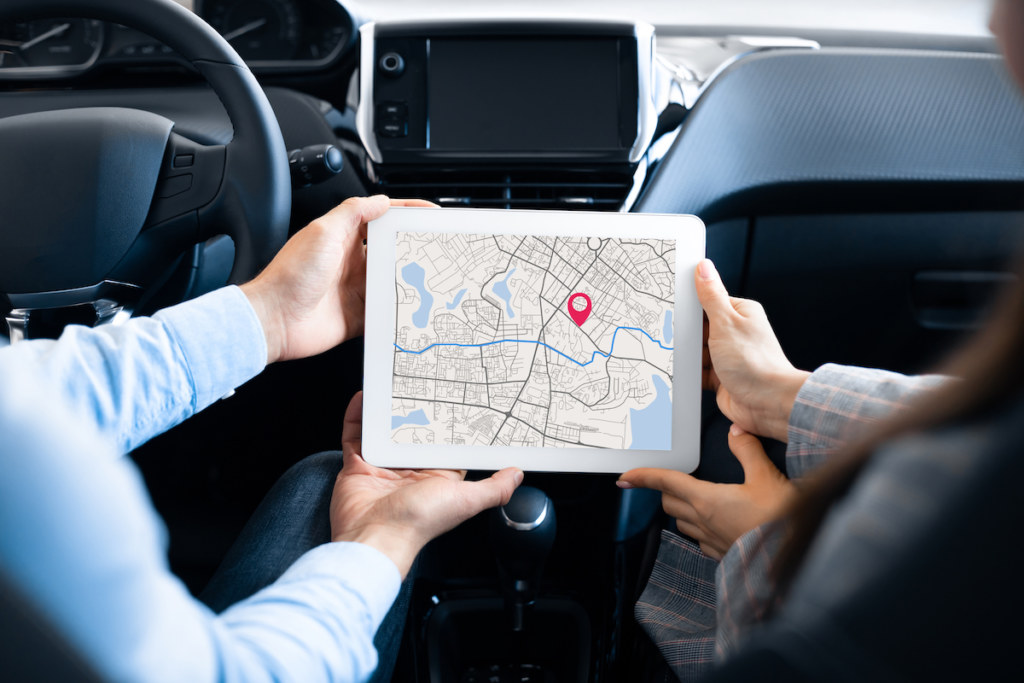
Does the person requiring the system have early, mid, or late-stage dementia? The answer to this question will impact the specific type of system you buy.
GPS Monitoring
Pros
-
It doesn’t require a network to work.
Cons
-
Physical barriers, like tall buildings and bridges, can obstruct GPS signals. If your loved one with dementia is lost inside a building or in a dense city, tracking them may be difficult.
Network Assisted GPS (A-GPS)
Pros
-
Uses cell towers to triangulate a person’s location; Better at detecting indoor location than GPS
Cons
-
Outside the cellular network, the device is useless
Radiofrequency Identification (RFID)
Works by transmitting radio wave signals to provide location data.
Pros
-
May not require any batteries, which means there’s no need to worry about replacing them.
Cons
-
Requires multiple pieces of equipment, and not all local law enforcement supports this kind of tech.
Person’s Condition:
Does the person requiring the system have early, mid, or late-stage dementia? The answer to this question will impact the specific type of system you buy.
For instance, a person in the early stages of Alzheimer’s may not feel comfortable with around-the-clock tracking. They may also be okay with a device they use only when going out.
However, if someone is in the later stages of dementia and more prone to getting lost, having a device with GPS tracking is vital.
When shopping for a system, it’s essential to consider both the desires of the person with dementia and how their mental condition may impact their safety.
Features:
Some features that may or may not be necessary for people with dementia. For instance:
- Two-way communication is less critical, since not all people will be able to communicate with operators.
- Fall detection is a bonus because anyone can fall and injure themselves.
- Tracking is the most crucial feature because people with dementia can become confused, wander off, and/or find themselves unable to return home.
- Caregiver tools may or may not be necessary to remotely track the whereabouts of loved ones.
How Does a Medical Alert System Help People with Alzheimer’s and Dementia?
A medical alert system can help keep these individuals safe, especially if they’re prone to wandering or getting lost. However, it’s important to note that tracking isn’t foolproof, and it doesn’t guarantee that a person with dementia will never get lost.
It’s also important to weigh the ethical considerations of constant monitoring.
Bottom Line
If you’re worried about the safety and health of someone you know who has dementia, a medical alert system can help.
Our top choice for people with Alzheimer’s or dementia is Bay Alarm Medical, thanks to its varied product offerings and positive customer feedback. If you’re looking for a system that can accommodate couples, the MobileHelp brand is our recommendation. Are you looking for a system that provides caregivers with plenty of remote monitoring tools? If so, LifeStation is your best bet.
Frequently Asked Questions
-
Sundowning primarily affects people with dementia during the mid to late stages of a progressive neurological disease.
-
People with dementia may not be able to communicate their condition to medical professionals or other people they encounter if they get lost.
A MedicAlert bracelet is an engraved bracelet that features specific information on the person’s identity and condition. The non-profit also has a 24/7 hotline that can help provide information to emergency medical personnel.
-
Dementia is a symptom of Alzheimer’s. Stages for this disease are early, middle, and late-stage—the later the stage, the more severe the symptoms, including dementia.
-
A GPS-enabled medical alert system can help you keep track of your loved ones with dementia.
-
Our top choice is the Bay Alarm medical system because of its impressive combination of tracking tools for caregivers, low-cost starter plans, varied product offerings and rave customer reviews.
*Pricing is accurate as of March 29, 2022.
Other Medical Alert Guides And Medical Alert Systems That We Have Reviewed
- Best Medical Alert Systems
- Best Medical Alert Systems with Fall Detection
- Best Personal Emergency Response Systems (PERS)
- Best Medical Alert Systems With No Monthly Fee
- Best Medical Alert Watches for 2022
- Best Medical Alert Bracelets for Seniors
- Best Medical Alert Systems with GPS
- Medical Guardian Review
- Aloe Care Health Review
- MobileHelp Review
- Bay Alarm Medical Review
- Medical Alert Review
- GreatCall Review
- LifeStation Review
- LifeFone Review
- Philips Lifeline Review
- MobileHelp Smart Review
- Alert1 Review
- ADT Medical Alert Review
- Apple Watch Medical Alert Review
- GreatCall Lively Mobile Reviews
- Rescue Alert Medical Alert Review
- Life Alert Review
Learn More About Medical Alert Systems
- Does AARP Cover Medical Alert Systems?
- Is a Medical Alert System Tax-Deductible?
- Medical Alert Systems Covered by Medicare
- Who Should Wear a Medical Alert System?
- Pros and Cons of a Medical Alert System from Wal-Mart
- What Is The Cost of Medical Alert Systems
- Medical Alert Jewelry Options
WRITTEN BY
Steph Coelho is a freelance writer and editor. In addition to nearly a decade spent writing and editing the written word, Steph also has experience working with and creating recreation programs for older adults.
View AuthorDo you want to cite this page? Use our ready-made cite template.

